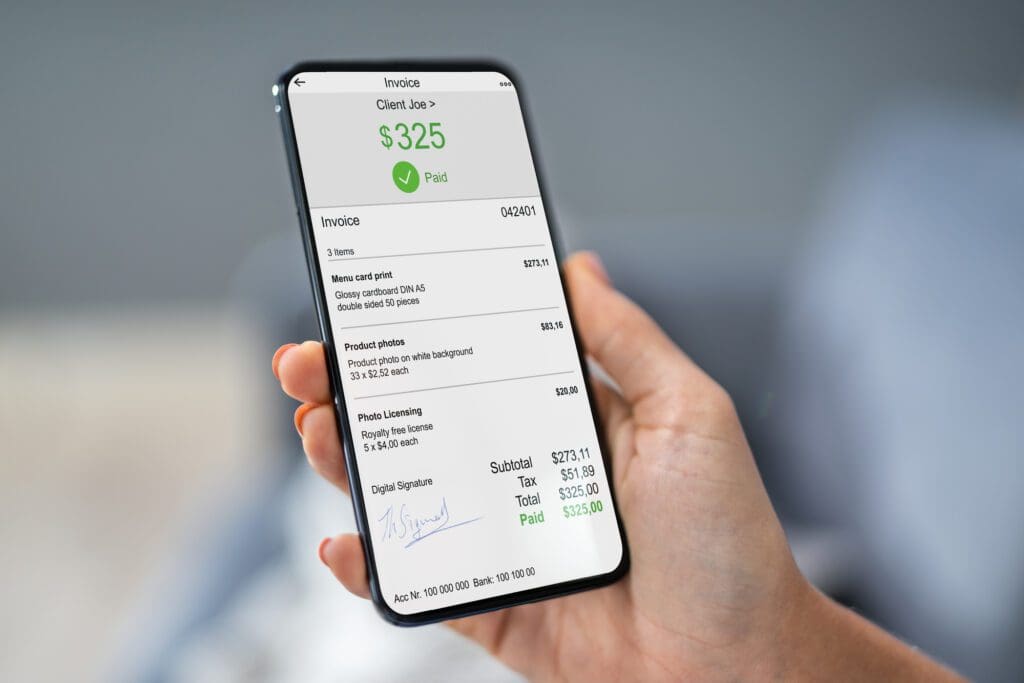
The 5 Best Online Accounting Software for SMEs to Consider
Last updated on 12/02/2021
The market is full of online accounting software for SMEs. That makes it a bit overwhelming when shopping for one. Luckily, I listed down what to consider when looking for online accounting software for your small or medium enterprise here.
If you do not want to end up tired from doing manual accounting, like the lady in the featured image, you definitely need online accounting software.
But today, I want to help you narrow down to a platform that suits your business best. With a list of the best online accounting software providers in the market, you will have an easier time picking.
1. Intuit Quickbooks
Quickbooks Online comes highly recommended in almost every list of online accounting software. There is a good reason why.
For starters, the design suits businesses in many industries regardless of the size- from manufacturing to retail, healthcare, and entertainment to self-employed, among others. With it, it is easy to organize and track your customers, vendors, and employees’ information.
The lowest plan has the most basic features like customizing, generating and sending invoices, accepting payments, tracking sales and sales tax, managing and paying bills and tracking income and expenses.
Depending on the pricing plan, you can generate standard to advanced reports, managing inventory, recurring invoices, automating approvals, and tracking the profitability of your projects. Additionally, all pricing plans have a Multi-currency feature, which is perfect if your business deals with more than one currency.
Quickbooks Online is cloud-based and has a free mobile app that is seamless and allows you to do everything on the go. You can also integrate it with your PayPal account and bank accounts (although I tried this with a Kenyan client, and the option was not available).
Pricing, on the other hand, can be too expensive compared to competitors. The lowest pricing for small businesses is $25 per month. That is pretty high considering it does not allow multiple users, no management of inventory, or offer restoration of company data.
Quickbooks Online Plus is a mid-level budget with a price tag of $70 per month. Still, quite expensive and only allows up to 5 users with basic permissions.
The Advanced plan will cost you $150 per month, but has access to all features, with advanced business reports, restoration of the company’s data, automated approvals and reminders and others. Unfortunately, it supports up to 25 users, but you can customize the user roles.

2. Xero
Xero is an affordable platform compared to Quickbooks and still offers robust features or small and medium enterprises. It is available for different business types, like manufacturing, farming, tourism, Cafés, and startups, among others.
What sets it apart from major competitors is the unlimited users feature regardless of the pricing plan you have. Whether you want to delegate the bank reconciliation job and the handling of expenses to different people, you do not have to cough money for that.
It is an easy-to-use platform with all the major features you would need from online accounting software. You can customize, generate, and send invoices online, manage inventory, do bank reconciliations, bill payments, recording, and managing of expenses.
It has a mobile app available on Android and iOS platforms. It is easy to use and gives you the freedom to do your business’s accounting tasks from anywhere.
The lowest pricing option is $9 per month. It only allows up to 5 invoices, 5 bills, and reconciling only 20 bank transactions. Cheaper as this is, other platforms offer more sophisticated features with the lowest plans.
The $30 per month plan offers all the above features and has no limitations on the number of invoices you send the bills you generate. It is a friendly plan for a growing small business or a starting one if you don’t want limitations.
The highest plan is currently at $60 per month and offers all the above features with no limitations. It is the only plan that supports multi-currency, tracking of project’s time and cost, and capturing and management of claims.
3. Wave
Wave Accounting is your go-to free online accounting software in the market. There no hidden charges, set-up fees, or monthly charges like its competitors. But that does not mean it does not deliver.
In fact, you will get an invoicing feature where you can customize, generate, and send estimates and invoices to your customers. There are unlimited expense and income tracking, tracking of sales tax, adding unlimited users, bank, and credit card connections.
One can generate and send customer statements online. The purchase feature has bills, receipts vendors, and products and services management features.
You can generate basic to advanced reports that show the financial health of your business. The system also has a reconciliation feature. It integrates with several platforms like PayPal and Google sheets. It supports multi-currency, receipt scanning, and is available on iOS and Android platforms.
The downside is the lack of an inventory management system and does not integrate with many third-party platforms compared to its competitors. There are some processing fees for doing debit and credit card invoices payment. Also, the payroll processing feature is also not free.
Also, as of late 2020, Wave was no longer available for users outside of the US and Canada. If you were an existing user, there were offers to migrate to Zoho, but the company is no longer signing up new users in other regions.

4. Sage Accounting
Sage accounting software offers online accounting software solutions for both small and medium enterprises in various industries. Some of the industries that can use this software include manufacturing, Non-profits, wholesale distributions, and construction.
The software allows you to personalize and send invoices, receive and make payments, connecting to your bank, and has a multi-currency feature. Depending on your choice of pricing, you can generate detailed reports, generate estimates and quotes, manage inventory, and record purchasing invoices.
What makes it interesting are the 2 types of cloud accounting options, each with different pricing options.
Sage Business Cloud Accounting is ideal for SMEs in need of a cash flow management system. The lowest pricing option on this plan is currently at $10 per month but offers only 3 features. It is best for anyone in need of a system that helps them create invoices and keep track of their creditors.
One can also connect to their bank account with this option. The other option is $25 and offers more features, like inventory management, supports multiple users and can generate real-time reports.
Sage 50cloud Accounting, on the other hand, is ideal for a more established business. It has all the features the previous option offers and more. It has a job costing feature, payment of bills, management of expenses, integration with Microsoft 365, and budgeting tool. There are 3 pricing options, $50.58, $78.25, and $131.66 per month, per user.
The downside, the plans are a bit confusing. Also, a business needs to pay more for a comprehensive package with basic features like inventory and bill management.
5. Zoho Books
Zoho is among the most user-friendly online accounting software I have used. It also comes with an affordable price tag. It is the best choice for anyone looking to automate most accounting activities. Zoho easily automates reminders for customer payments, inventory tracking, and creating recurring expenses.
The Zoho platform offers features like creating estimates, customizing and sending invoices, keeping track of expenses, and generating bills. You can also link the platform to your bank, which makes bank reconciliations easier.
It also has inventory management, sales order, sales tax, purchase order and online payment features, among others. You can also generate financial reports to help gauge if your business is on the right track.
There are 3 pricing options currently going for $9, $19 and $29 per month. The lowest plan is one of the best in the market. It is affordable and offers a wide array of features, like bank reconciliations, customizing and sending invoices, tracking expenses and budgeting. It allows up to 2 users, while the other two plans allow 3 and 10 users. However, one can add extra users at an additional cost.
Unfortunately, the payroll processing feature is limited in some areas. The platform also does not allow integration with many third-party service providers.
Best Online Accounting Software: Honourable Mention
6. SAP Business One
SAP ERP is the leading enterprise resource in the market and is one of the most integrated platforms I have used. There are 3 ERP and Finance options, and SAP Business One focuses mainly on Small and Medium-sized businesses. The system is ideal for business in most, if not all industries.
It is an integrated platform that offers finance, CRM, HR, purchasing, sales, inventory management, reports, and analytics all under one roof. It saves you the hassle of looking for different software for other business operations.
With the finance feature, you can automate accounts payable, accounts receivable, journal entries, and bank reconciliations. One can also manage the company’s assets, control budgets, monitor costs as well as generating financial reports.
The price is not a one-size-suits-all plan. What you pay will depend on the number of users, the customization level needed, the modules required, among others.
Conclusion
When choosing the best online accounting software for SMEs, one needs to do a lot of research. Why do you need online accounting software? And how will it help your business? What are the costs involved? Not forgetting the ideal features that suit your business model. Once you have your business’s needs aligned with the features required, settling on the best online accounting software will be easy.






